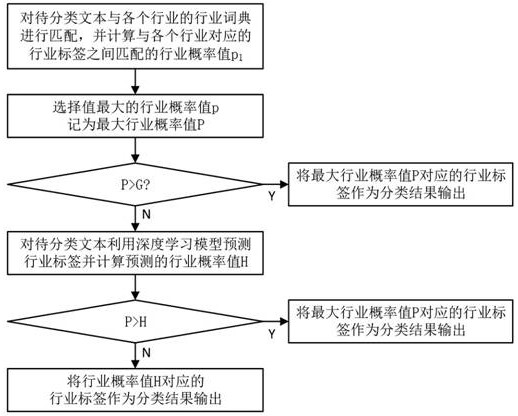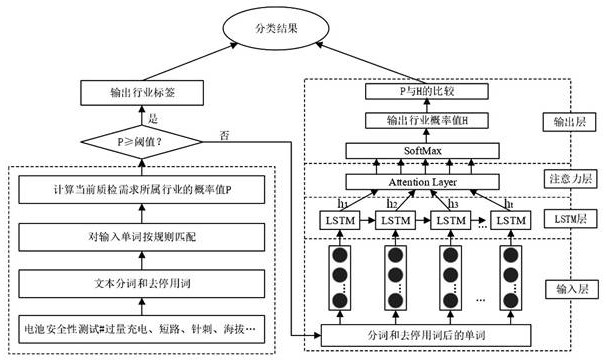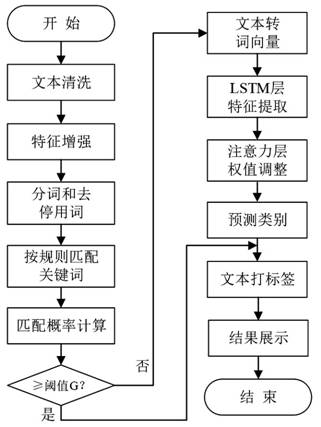User quality inspection demand classification method and system based on rule matching and deep learning
A technology of deep learning and classification methods, applied in the field of inspection and testing services and machine learning, which can solve problems such as different field classification capabilities, weak model generalization capabilities, and affecting the quality of inspection and testing services
- Summary
- Abstract
- Description
- Claims
- Application Information
AI Technical Summary
Problems solved by technology
Method used
Image
Examples
Embodiment Construction
[0038] Such as figure 1 As shown, the user quality inspection requirement classification method based on rule matching and deep learning in this embodiment includes:
[0039] 1) Match the text to be classified with the proper noun dictionaries of each industry, and calculate the industry probability P that matches the industry labels corresponding to each industry i , choose the industry probability P with the largest value i Recorded as the maximum industry probability value P;
[0040] 2) If the maximum industry probability value P is greater than or equal to the preset threshold G, output the industry label corresponding to the maximum industry probability value P as the classification result; otherwise, skip to the next step;
[0041] 3) Use the deep learning model to predict the industry label of the text to be classified and calculate the predicted industry probability value H; for both the maximum industry probability value P and the predicted industry probability val...
PUM
 Login to View More
Login to View More Abstract
Description
Claims
Application Information
 Login to View More
Login to View More - R&D
- Intellectual Property
- Life Sciences
- Materials
- Tech Scout
- Unparalleled Data Quality
- Higher Quality Content
- 60% Fewer Hallucinations
Browse by: Latest US Patents, China's latest patents, Technical Efficacy Thesaurus, Application Domain, Technology Topic, Popular Technical Reports.
© 2025 PatSnap. All rights reserved.Legal|Privacy policy|Modern Slavery Act Transparency Statement|Sitemap|About US| Contact US: help@patsnap.com



